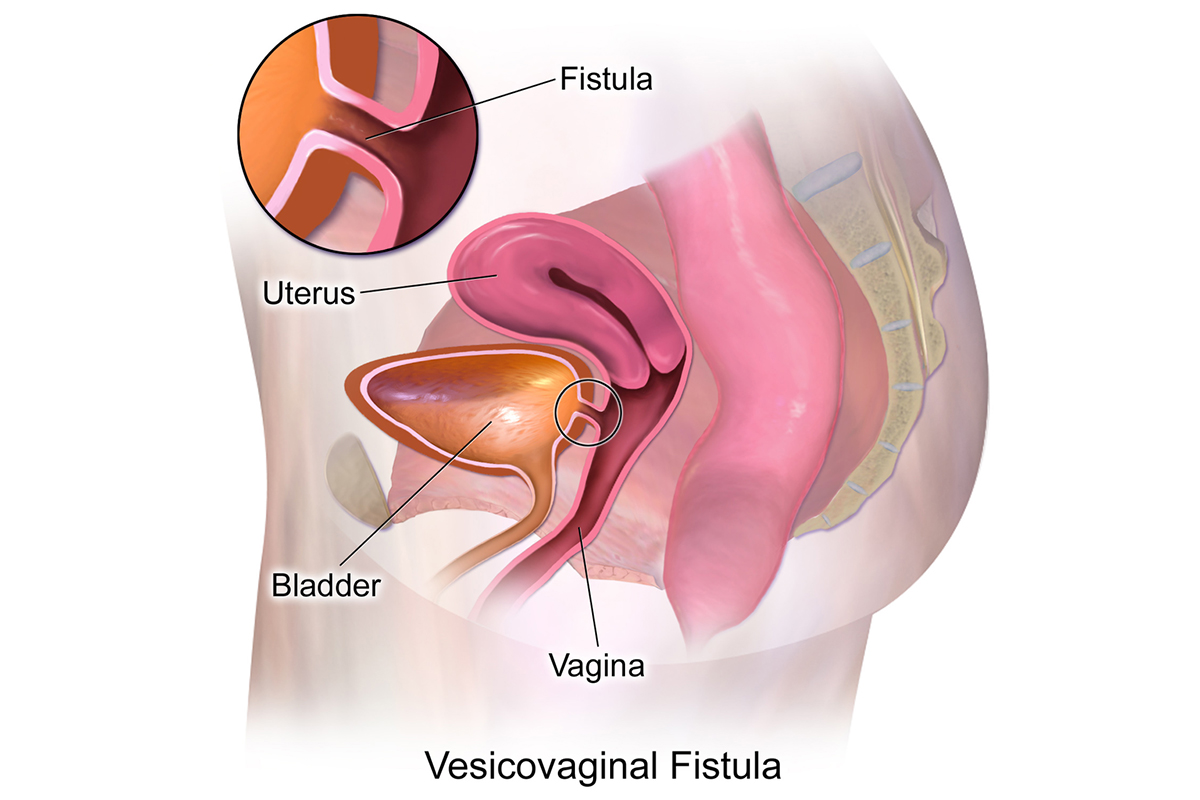WHAT IS VESICOVAGINAL FISTULA (VVF)?
A vesicovaginal fistula is an unwanted abnormal opening that develops between the bladder and the vagina. A fistula may be related to previous womb, vaginal or bladder surgery. It can also occur after infection, injuries or inflammation e.g. radiation.
SYMPTOMS OF VESICOVAGINAL FISTULA (VVF)
The symptoms are that of a urine leak from the vagina, typically a continuous leak if the fistula is of a larger size. This leak may be associated with a bad smell and skin excoriations should the area be persistently wet.
DIAGNOSING VESICOVAGINAL FISTULA (VVF)
Besides a detailed pelvic examination, a urinalysis and urine culture test are done. Imaging tests are essential like a Computed Tomography (CT) scan with contrast or a Magnetic Resonance Imaging (MRI) scan. It is a test that produces clear pictures of the human body without the use of X-rays. We would also perform a cystoscopy using a small and narrow tube (cystoscope) to see inside the urethra and bladder. It allows the identification of any openings in the bladder.
TREATMENTS FOR VESICOVAGINAL FISTULA (VVF)
Treatment for VVF is often surgical. Should the fistula be pinpoint and tiny, a cystoscopy and fulguration can aid closure. Larger fistulae would need to be closed and repaired. The approach would depend on the location of the fistula. Lower fistulae can be repaired by a vaginal approach, usually with an accompanying flap to aid healing. A specialized urologist most commonly performs this surgery because it is a very sensitive area. Any concurrent urine infections would also need to be treated with antibiotics.









